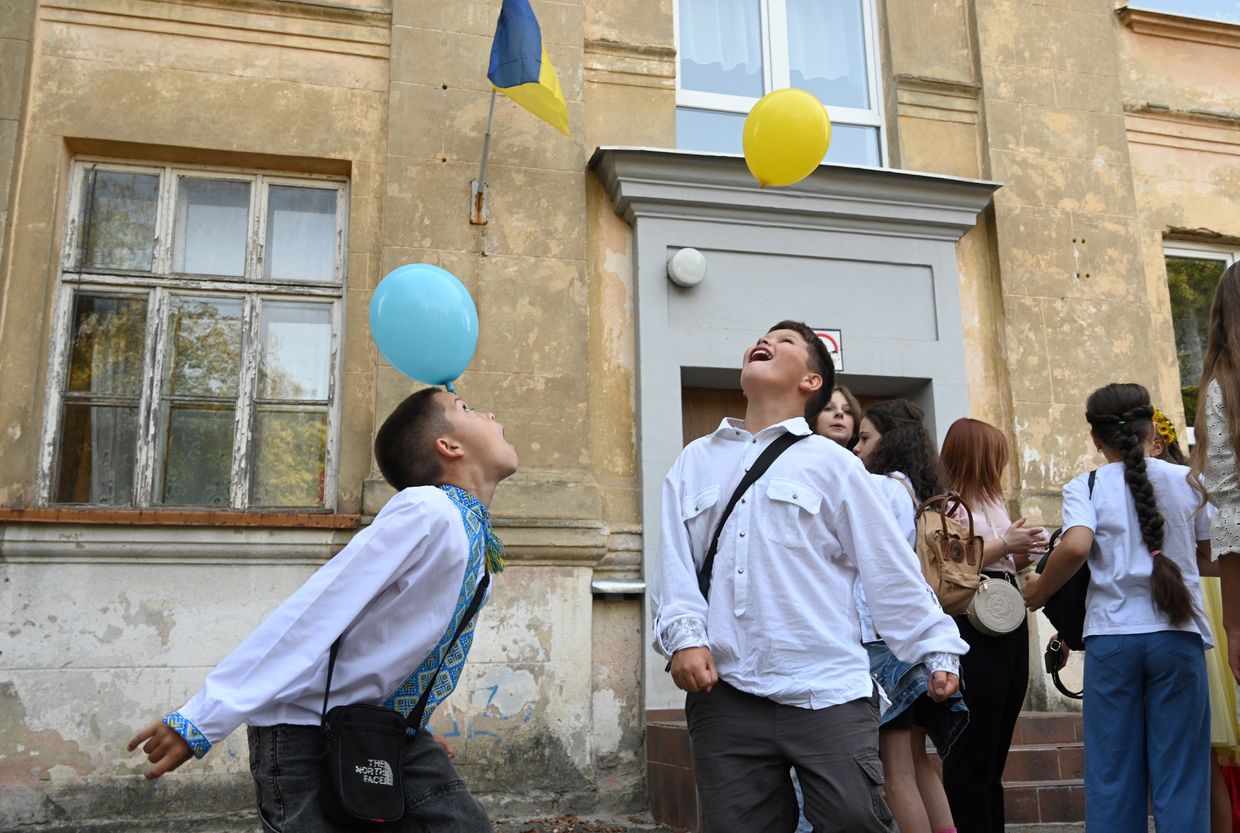Ukraine's Muslims defiant after Russian attack damages mosque — ‘We will clean, restore, then beat them’

"They are barbarians," 80-year-old Mustafa Dzhemilev tells the Kyiv Independent on Sept. 2, as he assesses the damage caused to the Islamic Cultural Center in Kyiv by a Russian missile attack in the early hours of the morning.
"If they targeted a children's hospital, why wouldn’t they destroy a cultural center?" he adds, referencing the attack on Okhmatdyt, Ukraine’s largest children’s hospital, on July 8.
The Islamic Cultural Center is a prominent hub for Ukrainian Muslims and is considered a main religious location for Crimean Tatar Muslims in the country outside of Russian-occupied Crimea.
Early in the morning on Sept. 2, explosions sounded in waves across Kyiv as air defenses intercepted incoming Russian missiles. Ukraine's Air Force said it detected 35 missiles of various types and 23 attack drones launched across the country. Nine Iskander ballistic missiles, 13 Kh-101 cruise missiles, and 20 drones were downed, the Air Force said.
Three people were injured in the attack, authorities reported, with falling debris damaging other buildings across the capital.
The damage to the Islamic Cultural Center was caused by a shock wave when a missile landed in the yard of a building behind it, creating a crater over 20 feet wide and partly collapsing the structure, shattering windows, and bringing down pieces of ceiling in the prayer halls.
Russia has destroyed or damaged over 500 churches, mosques, synagogues, and other religious sites across Ukraine since the beginning of the full-scale invasion, Zelensky said in late August.
There is no official information on whether the area around the mosque was hit by a direct missile strike or falling debris.
"Thankfully, there was no one in the center at the time," Vadym Dashevskyi, deputy supreme mufti of Crimea tells the Kyiv Independent, as he stands outside the damaged prayer hall.
"It is difficult, but the main thing is that no one was hurt. And the walls can be restored."
The hall damaged in the attack was used by President Volodymyr Zelensky and top government officials to host this year’s traditional Ramadan dinner for Muslims serving in Ukraine’s military and Crimean Tatars.
The center routinely hosts charity fundraisers, educational events, and several daily prayers, attracting around 250-400 faithful on Fridays.
According to Dashevskyi, the mosque will continue to function, although all the carpets in the prayer halls were dusted by tiny glass shards and are beyond cleaning.
"If not us, who will clean it up?" says Ruslan Aliiev, 37, a mosque regular, who skipped work to help out.
Taking a break from sweeping up debris, around 1 p.m. nearly a dozen men unrolled a spare carpet in the center’s yard and kneeled for the afternoon prayer.
Later in the afternoon, Muslim leaders and officials arrived on the site to inspect the damage and express support.
Turkey’s ambassador to Ukraine, Mustafa Levent Bilgen, toured the building with Mustafa Dzhemilev, a Ukrainian lawmaker and a prominent Crimean Tatar leader, and Nariman Dzhelial, first deputy chairman of the Mejlis of the Crimean Tatar People who was released in a prisoner exchange with Russia on July 28.
We got calls from Pakistan and Indonesia, from friends who pray for us," says Murat Suleimanov, the mufti of the Religious Administration of Muslims of Ukraine "Ummah" which runs parallel to the Religious Administration of Crimean Muslims managing the center.
"The ambassadors of Pakistan and the Republic of South Africa came to our mosque today asking about it," he adds.
"The mosque of Kharkiv and many others in the east were destroyed. It's all the same to (Russians) – a mosque or a church," Dashevskyi says.
"Russia systematically persecutes Muslims (in their own state)," adds Dzhelial, who was recently released from an almost 3-year-long detention in Crimea, where a Russian court sentenced him to 17 years in prison after he participated in a public conference supporting the liberation of Crimea in 2021.
Lenie Ibragimova, 36, a Crimean Tatar artist who was among the first women to show up for cleaning, says that she is "not helping, but fulfilling her duty."
"Russians think that we will ask for peace at any terms if they attack us, but it’s the other way around. We will clean up, restore it, and we will beat them."




















